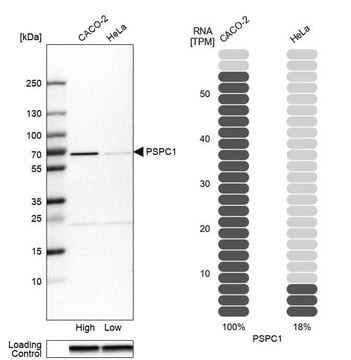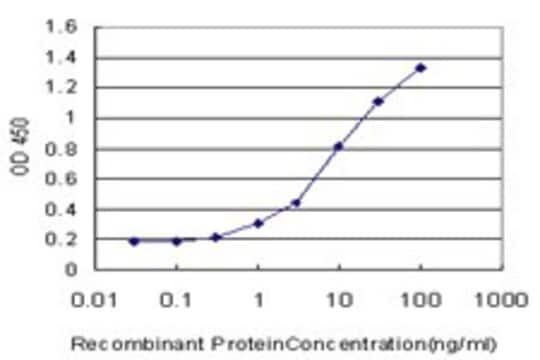ST1202
Anti-PGC-1α Mouse mAb (4C1.3)
liquid, clone 4C1.3, Calbiochem®
Synonyme(s) :
Anti-Peroxisome Proliferator-Activated Receptor- γ Coactivator 1 α
About This Item
Produits recommandés
Source biologique
mouse
Niveau de qualité
Forme d'anticorps
purified antibody
Type de produit anticorps
primary antibodies
Clone
4C1.3, monoclonal
Forme
liquid
Ne contient pas
preservative
Espèces réactives
mouse, human, rat
Fabricant/nom de marque
Calbiochem®
Conditions de stockage
OK to freeze
avoid repeated freeze/thaw cycles
Isotype
IgG
Température de stockage
−70°C
Modification post-traductionnelle de la cible
unmodified
Informations sur le gène
human ... PPARGC1A(10891)
Description générale
Immunogène
Application
Immunocytochemistry (5-10 µg/ml)
Immunoprecipitation (10 µg/ml)
Paraffin Sections (whole mount) (see application references)
Avertissement
Forme physique
Reconstitution
Autres remarques
Rodgers, J.T., et al. 2008. FEBS Lett. 582, 46.
Mazzucotelli, A., et al. 2007. Diabetes 10, 2467.
Nemoto, S., et al. 2005. J. Biol. Chem. 16, 16456.
Informations légales
Vous ne trouvez pas le bon produit ?
Essayez notre Outil de sélection de produits.
Code de la classe de stockage
10 - Combustible liquids
Certificats d'analyse (COA)
Recherchez un Certificats d'analyse (COA) en saisissant le numéro de lot du produit. Les numéros de lot figurent sur l'étiquette du produit après les mots "Lot" ou "Batch".
Déjà en possession de ce produit ?
Retrouvez la documentation relative aux produits que vous avez récemment achetés dans la Bibliothèque de documents.
Notre équipe de scientifiques dispose d'une expérience dans tous les secteurs de la recherche, notamment en sciences de la vie, science des matériaux, synthèse chimique, chromatographie, analyse et dans de nombreux autres domaines..
Contacter notre Service technique








